Your basket is currently empty!

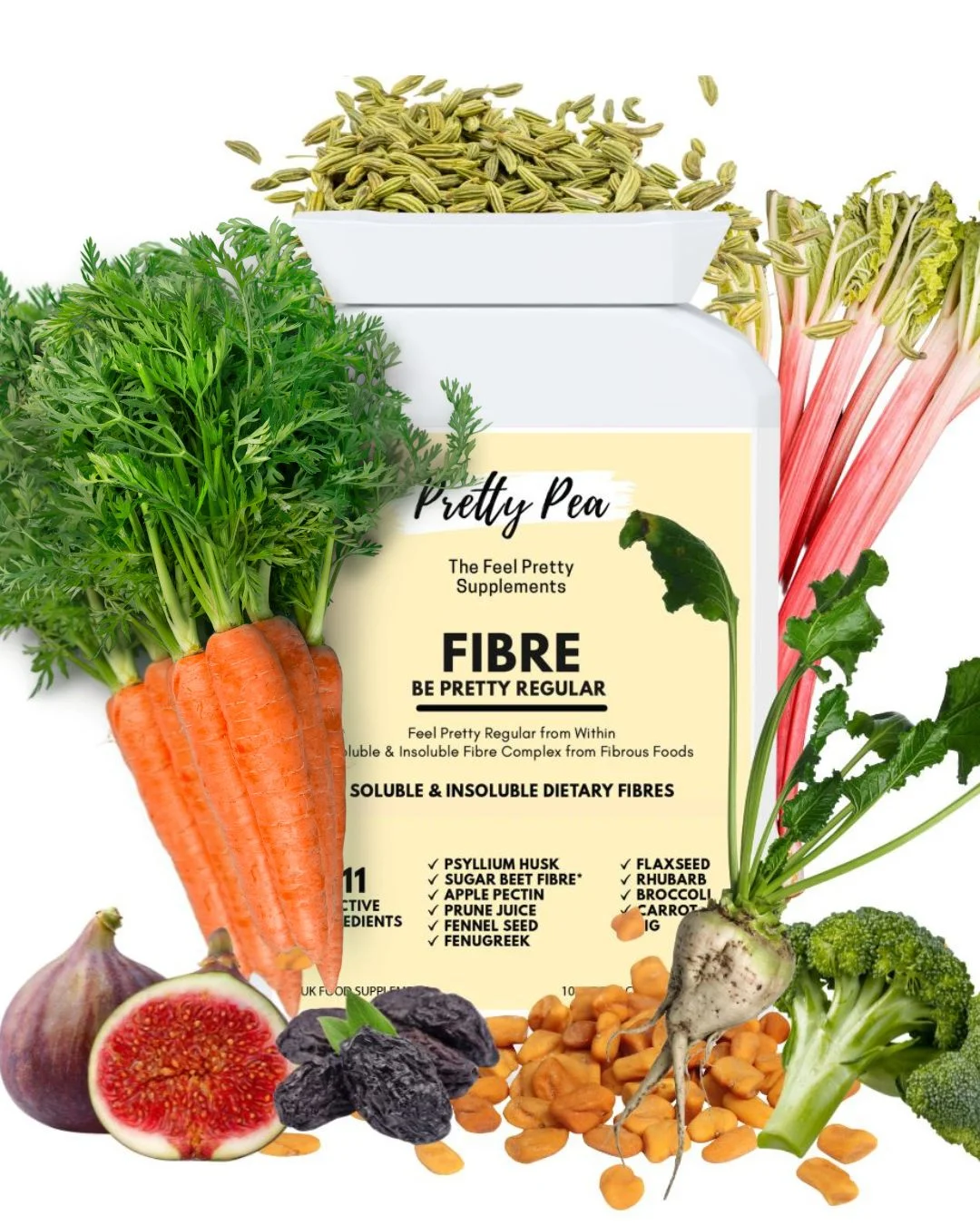
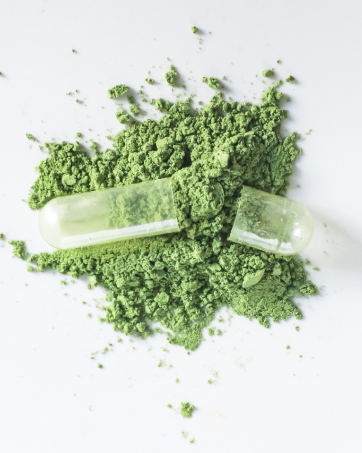
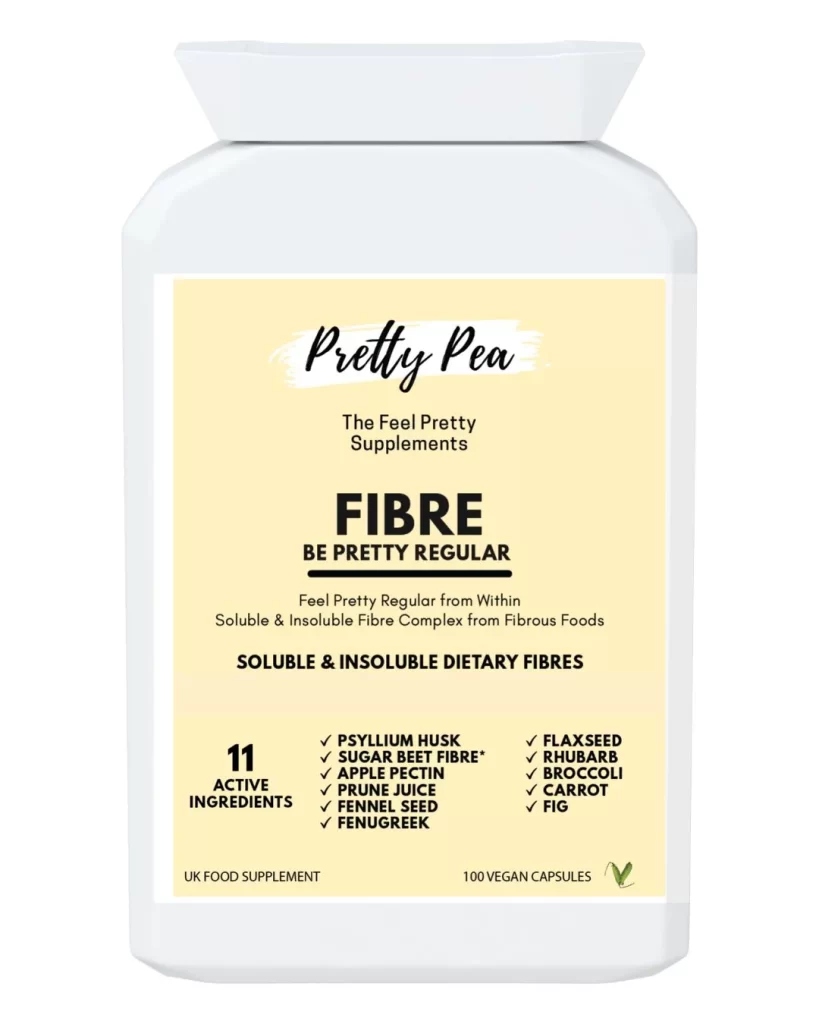
Fibre Supplement
DIETARY FIBRE FOODS
£25.99
11 Fibre Rich Foods
Soluble & Insoluble Fibre
Psyllium Husk
Sugar Beet Fibre
Prune Juice
Fenugreek
Fig
Fennel Seed
Flaxseed
Rhubarb
Broccoli
Carrot
Apple Pectin
Cellulose, Pectin, Hemicellulose, Lignin & Gums
More than just roughage, Pretty Regular fibre supplements are foods supplements that make sense.
Did you know that our digestive tract is home to around 70% of our immune system and happy hormone serotonin, meaning our digestion really does impact how we look and feel on a daily basis.


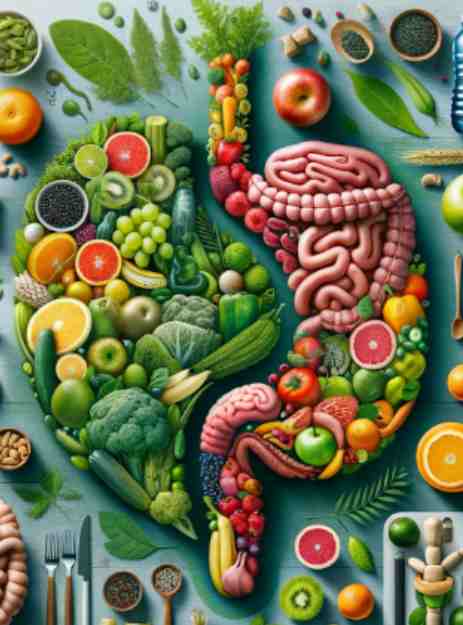
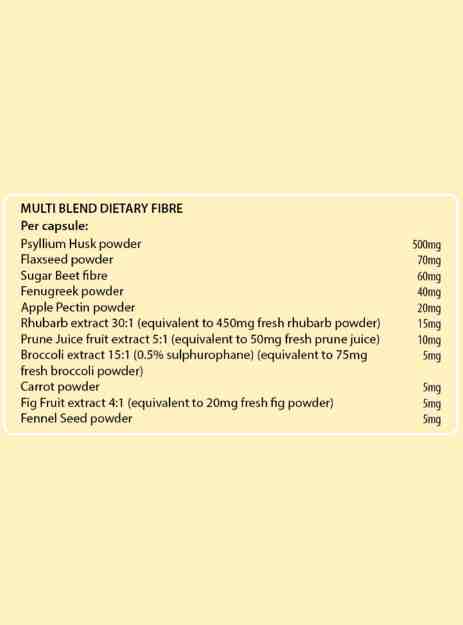
FEELING PRETTY REGULAR STARTS FROM WITHIN

Daily Fibre
Soluble & Insoluble Fibre are Key Nutrients to a Varied & Balanced Diet

More than Roughage
More than just Roughage – these fibre capsules also provide Cellulose, Pectin, Hemicellulose, Lignin & Gums

Fibrous Foods
Fibre derived from High Fibre Foods Psyllium husk, Flaxseed, Sugar beet, Prune juice, Fig fruit, Rhubarb, Apple Pectin & more
Fibre Benefits
Fibre
+
Pretty Regular Fibre
Not consuming the Fibre recommended daily amount can leave women feeling they have a sluggish digestion, constipation and bloated with a lack energy.
If that’s not enough, digestion is key to how we look and feel.
It’s now known that our digestive tract is home to our happy hormone serotonin and around 70-80% of our immune system.
A happy efficient digestion also ensures optimum nutrient absorption from your food.
The combination of ingredients provides both soluble and insoluble fibres derived from flaxseed, psyllium husk, sugar beet, prune juice, fig fruit, rhubarb, pectin, fenugreek and other fibrous foods.
More than just roughage, these fibre supplements provide your body with cellulose, pectin, hemicellulose, lignin and gums.
How many servings
+
Contains 100 Vegan Easy Take Capsules.
Each capsule providing 513mg of dietary fibre.
How to use
+
Take 1 or 2 capsules, 1 to 3 times per day or adjust intake as required.
Always take with a minimum of 250ml of water.
Ideally take before an evening meal or split total intake over 2 meals.
What’s Inside?
Soluble & Insoluble Fibres
+
Psyllium Husk
Sugar Beet Fibre
Fenugreek
Figs
Prune Juice
Apple Pectin
Broccoli
Carrot
Fennel Seed
Rhubarb
Flaxseed
Safety & Contraindications
Results may vary from person to person.
Store in a cool dry place, out of the reach of children.
Best before date: see base of container.
Caution: Do not exceed the recommended daily intake.
Supplements should not be used as a substitute for a balanced and varied diet and healthy lifestyle.
Always consult your doctor before taking any supplements or changing your diet.
As with all supplements, if you feel unwell, stop taking this product immediately and seek medical advice
References
The Health Benefits of Dietary Fibre – PMC (nih.gov)
Scientific Opinion on Dietary Reference Values for carbohydrates and dietary fibre (unimi.it)
Scientific Opinion on the substantiation of a health claim related to sugar beet fibre and increasing faecal bulk pursuant to Article 13(5) of Regulation (EC) No 1924/2006 (wiley.com)
How to get more fibre into your diet – NHS
Fibre RDA – Public Health England Publichttps://assets.publishing.service.gov.uk/government/uploads/system/uploads/attachment_data/file/618167/government_dietary_recommendations.pdf